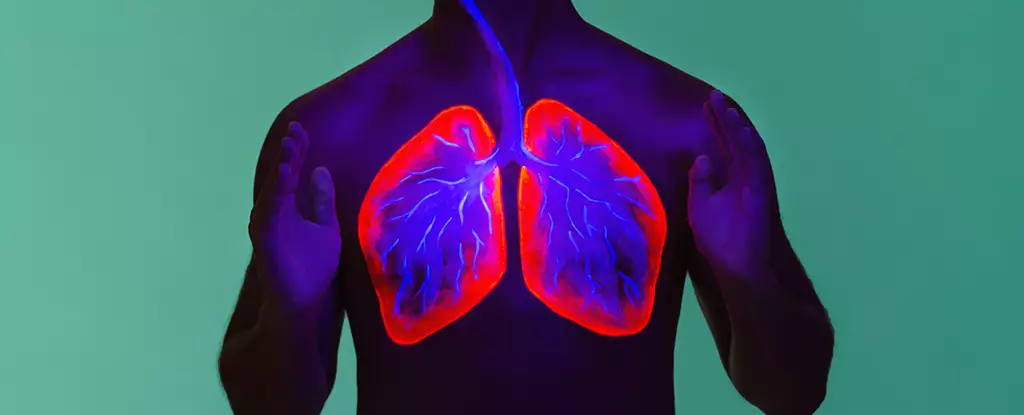While the battle against lung cancer has long been centered around familiar foes like smoking and environmental pollutants, emerging research suggests that our very dietary choices could also play a significant role in this dire disease. Recent investigations led by teams from the University of Florida and the University of Kentucky have uncovered a captivating and concerning connection linking glycogen—a molecule primarily known for its energy-storing properties—to lung cancer, particularly focusing on lung adenocarcinoma. This type of lung cancer is responsible for a staggering 40% of all lung cancer cases worldwide, making it a critical area for research and public health intervention.
This pioneering study unveiled that increased levels of glycogen were present in tissue samples from patients suffering from lung adenocarcinoma. Not merely a passive observer, glycogen seems to actively fuel cancer growth; when tested in mice, enhanced glycogen levels resulted in accelerated tumor proliferation, while reducing glycogen availability significantly stunted tumor growth. The researchers utilized an innovative method called spatial metabolomics to identify the specific characteristics of small molecules in different tissue locales, offering groundbreaking insights into molecular interactions within healthy and cancerous tissue.
The Metabolic Intrigue of Glycogen
Glycogen, widely recognized as an essential energy reserve stemming from carbohydrates, has now begun to reveal darker implications in cancer biology. This polysaccharide, stored in muscles and the liver, is what our bodies rely on during periods of exertion when glucose from our food is not immediately required. The connection between glycogen and cancer appears to mirror that of cancer cells’ notorious hunger for glucose, creating a karmic loop where high carbohydrate consumption fuels accelerated cancer growth.
Dietary habits, particularly those associated with Western lifestyles—including high-fat and high-carbohydrate diets—have been linked to elevated glycogen levels. In the recent study, mice subjected to diets rich in these components exhibited significantly more lung cancer growth compared to those receiving more balanced or control diets. This evidence raises crucial questions about dietary influences on cancer progression and the potential need for re-evaluation of public health messaging surrounding diet and cancer risk.
Implications for Public Health and Awareness
The necessity for an expansive public health dialogue regarding diet’s impact on lung cancer risk cannot be overstated. Sun, a molecular biologist involved in the study, advocates for a paradigm shift towards dietary education akin to efforts seen in smoking cessation campaigns. It’s vital that upcoming strategies prioritize heightened public awareness about the consequences of dietary choices on cancer risk, incorporating policy-driven initiatives that encourage healthier eating habits as foundational steps in cancer prevention.
The insights drawn from this research indicate that dietary consultation and intervention could play a more prominent role in lung cancer prevention efforts. Just as certain diets have been implicated in the exacerbation of pancreatic and liver cancers, it appears the ramifications of poor dietary choices may extend to lung cancer as well. This calls for an urgent reevaluation of existing beliefs regarding which cancers are influenced primarily by lifestyle factors, urging a holistic view of cancer prevention that integrates dietary habits.
The Future of Cancer Research
Although it is crucial to approach these findings with caution due to the necessity for further human studies, the association between diet and lung cancer identified in this research could substantially alter mainstream medical and public health narratives. While glycogen levels were examined predominantly in lung adenocarcinoma, the lack of correlation seen in other lung cancer types, like squamous cell carcinoma, highlights an essential area that merits deeper investigation.
In the future, as research progresses, we may witness a shift in how clinicians and patients alike understand the role of nutrition in cancer treatment and prevention. If confirmed, these findings could empower individuals to make informed dietary choices that not only enhance general well-being but also mitigate the risks associated with one of the world’s deadliest diseases. While eating wisely may not render one immune from lung cancer, emerging evidence suggests that our plates hold more power over our health outcomes than previously realized. The path ahead is promising, yet fraught with the need for further enlightenment on the relationship between our diets and cancer evolution.


Leave a Reply